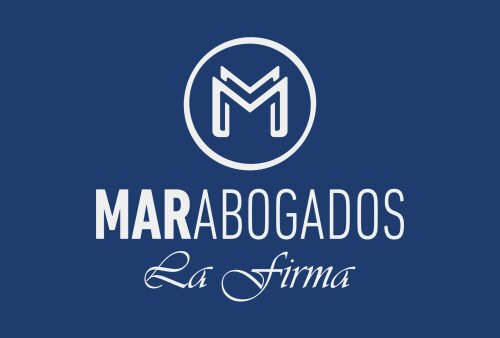Best Real Estate Contracts and Negotiations Lawyers in Las Palmas de Gran Canaria
Share your needs with us, get contacted by law firms.
Free. Takes 2 min.
Free Guide to Hiring a Real Estate Lawyer
List of the best lawyers in Las Palmas de Gran Canaria, Spain
About Real Estate Contracts and Negotiations Law in Las Palmas de Gran Canaria, Spain
Las Palmas de Gran Canaria is a vibrant city and a popular destination for both residents and property investors. Real estate transactions here, like the rest of Spain, are governed by a combination of national and regional laws. These laws regulate how properties are bought, sold, leased, and transferred. The process typically involves contracts that stipulate the rights and obligations of both parties. Local customs and requirements, such as documentation, taxes, and notary involvement, are especially important to understand in the Canary Islands region. Whether you are buying a family home, investing in holiday rentals, or negotiating a commercial lease, a clear understanding of the legal landscape is essential for protecting your interests.
Why You May Need a Lawyer
Real estate transactions are significant financial undertakings that involve binding legal commitments. In Las Palmas de Gran Canaria, you may need a lawyer for several reasons:
- To review and draft contracts to ensure your interests are protected
- To carry out due diligence and verify legal ownership of the property
- To clarify obligations, conditions, and rights under Spanish law
- To help with negotiations and resolve disputes between buyers, sellers, or agents
- To support foreigners unfamiliar with local legal practices or language
- To navigate inheritance, joint ownership, or property partition issues
- To process permits or deal with municipal restrictions on property use
- To identify and minimize your tax liabilities related to property transactions
While some contracts seem straightforward, even small errors or misunderstandings can lead to costly consequences. Engaging a knowledgeable real estate lawyer can provide peace of mind and ensure a smooth process.
Local Laws Overview
Real estate contracts and negotiations in Las Palmas de Gran Canaria adhere to the Spanish Civil Code, as well as specific regional regulations applicable in the Canary Islands. Key aspects include:
- Public Deed Requirement: For a property transfer to be fully effective and registered, it must be formalized in a public deed before a notary and filed with the Land Registry (Registro de la Propiedad).
- Deposit Agreements: It is common to sign a preliminary contract, often called an “arras” agreement, where a deposit is paid. There are several types, and each one has different legal implications if a party withdraws.
- Urban Planning Regulations: Local zoning laws may affect permissible uses and future developments on a property.
- Foreign Buyers: Non-residents can purchase property, but may need to obtain a NIE (Foreigner’s Identification Number) and comply with additional reporting obligations.
- Lease Agreements: Residential and commercial leases are regulated under different rules, with minimum durations, deposit requirements, and tenant protections.
- Taxes and Fees: Buyers and sellers must consider transfer taxes, notary fees, and registry costs. The Canary Islands have specific tax differentials, such as IGIC instead of mainland VAT.
Working with a local lawyer helps ensure compliance with all legal formalities to avoid surprises after the deal is closed.
Frequently Asked Questions
What documents do I need to buy property in Las Palmas de Gran Canaria?
You typically need your passport or ID, a NIE (Foreigner’s Identification Number) if you are a non-Spanish citizen, proof of funds, and sometimes a Spanish bank account. The seller must provide proof of ownership, property registry extracts, and certificates regarding debts or encumbrances.
What is a deposit or "arras" contract in Spain?
An "arras" contract is a preliminary agreement where the buyer pays a deposit to secure the deal. There are various types, including penitential ("arras penitenciales"), which allow either party to back out under certain financial penalties.
Is it necessary to sign the property deed before a notary?
Yes, signing the public deed ("escritura pública") before a notary is required for the transfer of ownership to be officially registered and enforceable.
Who pays the taxes and fees during a property transfer?
In general, the buyer is responsible for most taxes and fees, including the property transfer tax, notary, and registration costs. The seller is usually responsible for the municipal capital gains tax.
Do foreign buyers have any special requirements?
Foreigners must obtain a NIE number and will be subject to anti-money laundering checks. Some additional reporting is also necessary, particularly for non-EU buyers.
What are the common risks in real estate contracts?
Risks include undisclosed debts or encumbrances, boundary disputes, non-compliance with urban planning, and unclear title. Lack of clarity in the contract can also lead to disputes over deposits or timelines.
What happens if one party backs out after signing a deposit agreement?
The specific consequences depend on the type of "arras" contract signed. In most cases, if the buyer withdraws, they lose the deposit. If the seller withdraws, they may have to pay back double the deposit amount.
How are disputes between buyers and sellers usually resolved?
Most disputes are resolved through negotiation or mediation. If these fail, parties may pursue legal action in the local courts. Having clear, well-drafted contracts helps prevent disputes.
Are there restrictions on renting out property, especially for holiday lets?
Yes, local regulations in the Canary Islands can restrict or license holiday rentals. It is necessary to check municipal and regional laws before using a property for short-term lets.
Can I buy property remotely without visiting Spain?
It is possible to buy property remotely using a legal representative with a power of attorney. However, you will still need to comply with identification and legal requirements, including obtaining a NIE.
Additional Resources
For more support and information on real estate contracts and negotiations in Las Palmas de Gran Canaria, consider reaching out to these resources:
- Local notary offices for deed formalization and public record advice
- The Colegio de Abogados de Las Palmas (Las Palmas Bar Association) for finding a qualified real estate lawyer
- The Registro de la Propiedad (Land Registry) offices for property registration and title checks
- Municipal Urban Planning Department for information on zoning and permitted property uses
- Regional Tax Agency for information on Canary Islands-specific taxes and fees
- Consumer associations for guidance on property transactions and rights
Next Steps
If you are considering entering into a real estate contract or negotiation in Las Palmas de Gran Canaria, here are the recommended steps:
- Consult with a local real estate lawyer to review your situation and contract documents
- Gather all necessary documentation including property documents, identification, and financial records
- Conduct due diligence on the property, including title checks and obtaining urban planning certificates
- Negotiate contractual terms with the assistance of your lawyer, ensuring all conditions and obligations are clear
- Sign all agreements as required, preferably in the presence of a notary
- Register the property deed with the Land Registry to protect your legal interest
- Comply with all local tax filings and municipal requirements post-transaction
Taking these steps with professional legal support helps protect your investment and ensures compliance with all applicable laws and local regulations.
Lawzana helps you find the best lawyers and law firms in Las Palmas de Gran Canaria through a curated and pre-screened list of qualified legal professionals. Our platform offers rankings and detailed profiles of attorneys and law firms, allowing you to compare based on practice areas, including Real Estate Contracts and Negotiations, experience, and client feedback.
Each profile includes a description of the firm's areas of practice, client reviews, team members and partners, year of establishment, spoken languages, office locations, contact information, social media presence, and any published articles or resources. Most firms on our platform speak English and are experienced in both local and international legal matters.
Get a quote from top-rated law firms in Las Palmas de Gran Canaria, Spain — quickly, securely, and without unnecessary hassle.
Disclaimer:
The information provided on this page is for general informational purposes only and does not constitute legal advice. While we strive to ensure the accuracy and relevance of the content, legal information may change over time, and interpretations of the law can vary. You should always consult with a qualified legal professional for advice specific to your situation.
We disclaim all liability for actions taken or not taken based on the content of this page. If you believe any information is incorrect or outdated, please contact us, and we will review and update it where appropriate.









